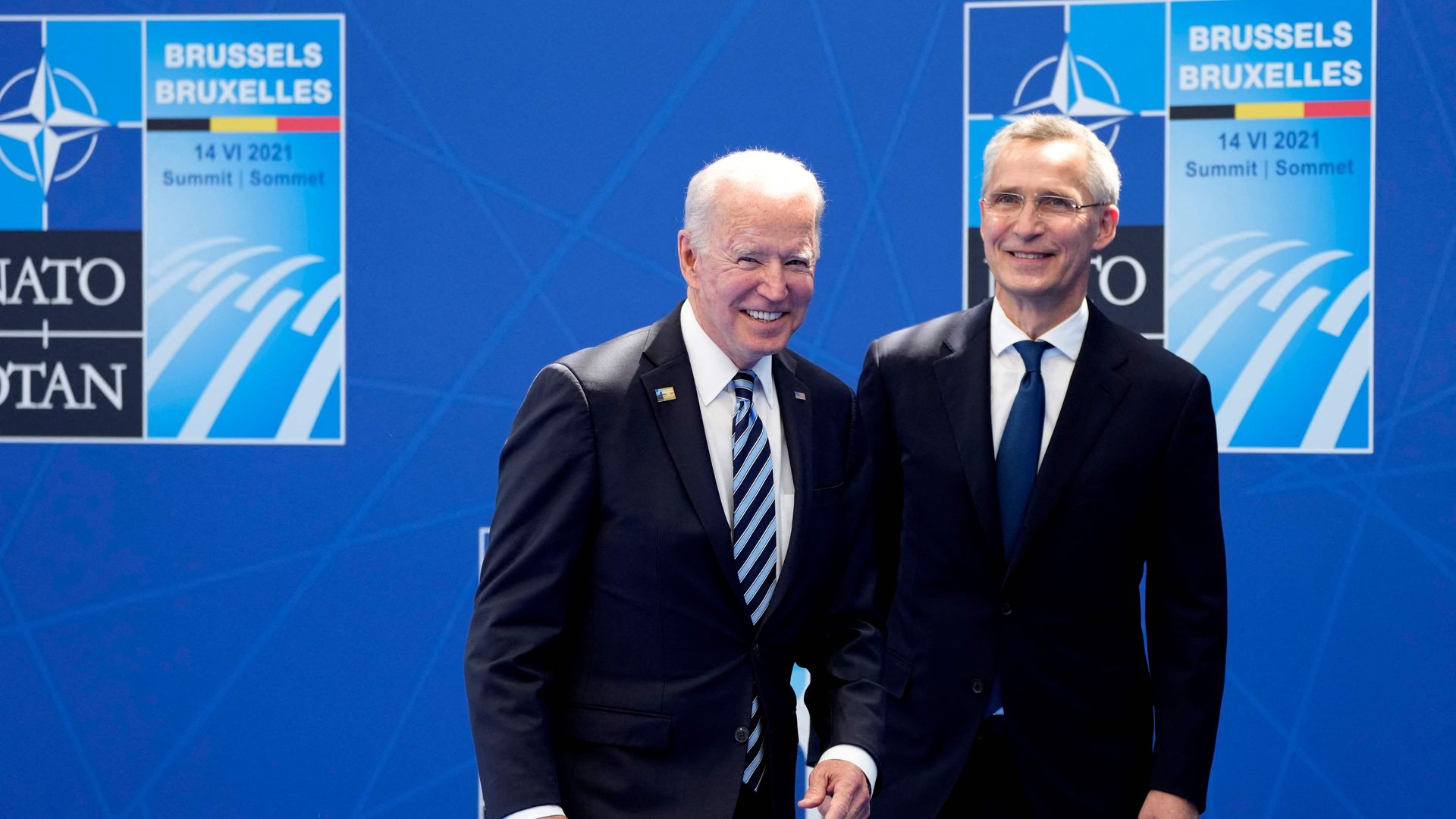NATO leaders take strongest position yet on threat from China
Add Axios as your preferred source to
see more of our stories on Google.

President BIden with NATO Secretary General Jens Stoltenberg. Photo: Francois Mori/Pool/AFP via Getty Images
NATO leaders view China's growing influence, military prowess and assertive behavior as "systemic challenges to the rules-based international order," according to a communique released Monday.
Why it matters: It's the first time that NATO, which was founded in 1949 to confront the Soviet Union, has formally addressed the threat posed by China's military ambitions. The alliance did not, however, refer to China as a "rival" or "adversary."
Details ... NATO leaders addressed China in depth in the 55th section of their 79-section communique, raising concerns about the following "coercive policies":
- China's rapid expansion of its nuclear arsenal.
- Military modernization and "publicly declared military-civil fusion strategy."
- Military cooperation with Russia, including in the Euro-Atlantic area.
- Frequent lack of transparency and use of disinformation.
Yes, but: "Based on our interests, we welcome opportunities to engage with China on areas of relevance to the Alliance and on common challenges such as climate change," the communique adds. "Reciprocal transparency and understanding would benefit both NATO and China."
The big picture: President Biden embarked on his first international trip to the G7 and NATO summits with the goal of rallying allies to confront Beijing's economic and human rights abuses, which include — in the eyes of the U.S. State Department and several NATO-associated parliaments — the genocide of Uyghur Muslims.
- Biden has met some resistance in that effort, as European leaders have long sought to tamp down the risk of confrontation and — in the case of Germany's Angela Merkel, for example — deepen economic ties with China.
- French President Emmanuel Macron said at a press conference that he wanted "a strategic clarification" on NATO's purpose, telling reporters that "in my book, China isn’t part of the Atlantic geography, or maybe my map has a problem."
- NATO Secretary General Jens Stoltenberg warned that "China is coming closer to us" in terms of its military encroachment, infrastructure investment and cyber activities, but added that NATO is "not entering a new Cold War with China, and China is not our adversary, our enemy."
Between the lines: The communique references "Russia" 62 times, compared to just 10 times for "China" — a sign that NATO's main priority remains, for now, on Europe's eastern front.
